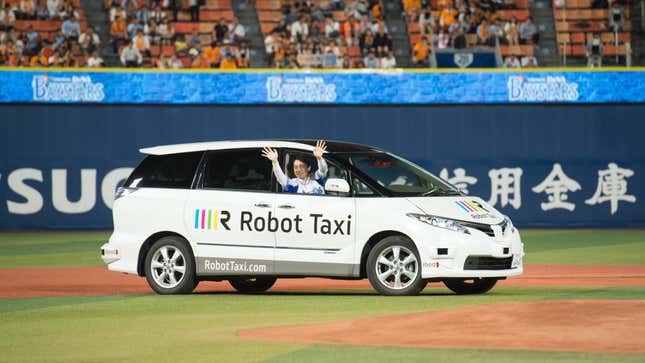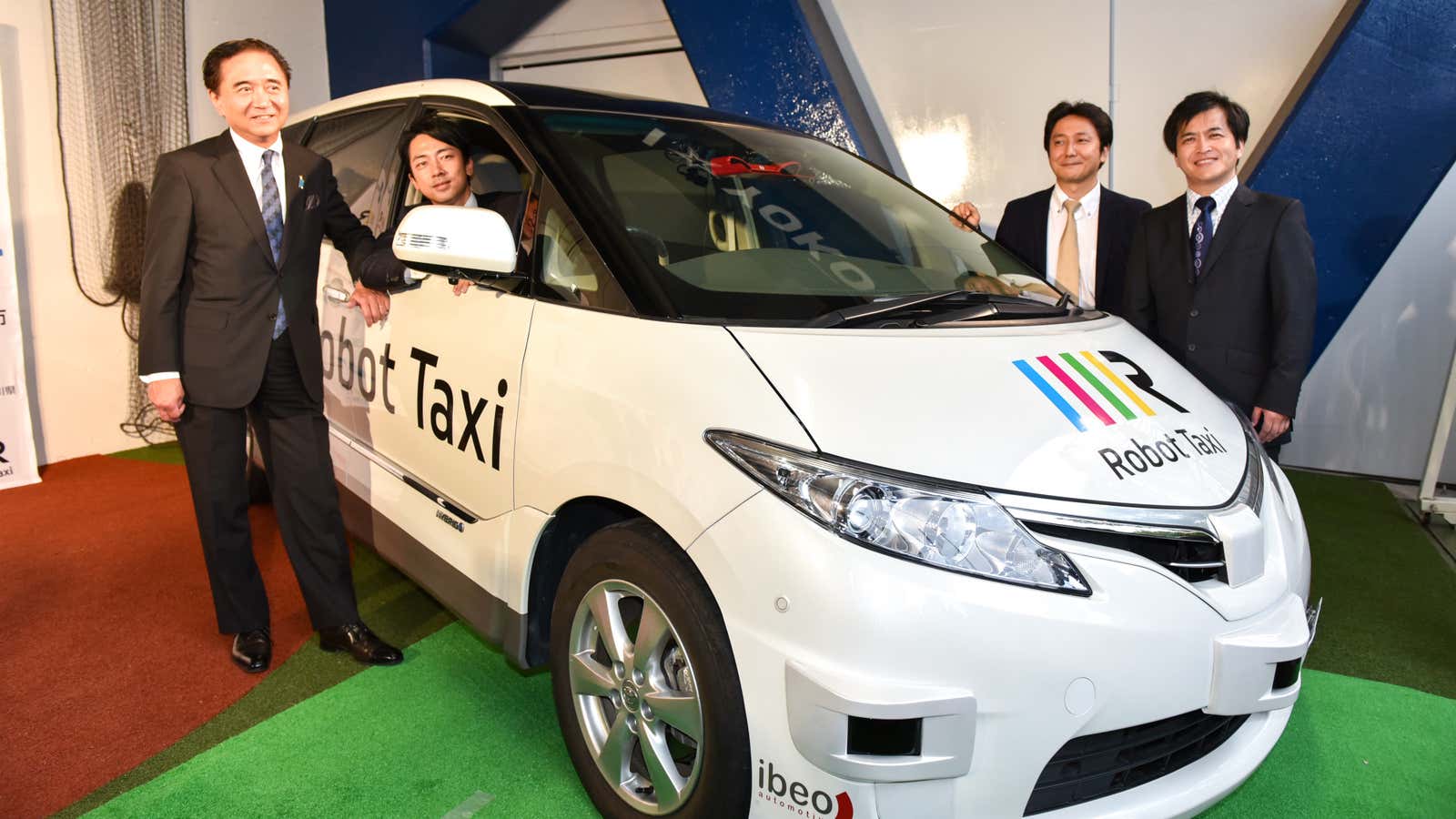Tokyo
Japan is planning to use the 2020 Tokyo Olympics as an opportunity to show the world it’s still a tech leader. One of those efforts—if the technology and regulatory clearances shape out—could be an autonomous, self-driving taxi service, currently in development.
Tokyo-based Robot Taxi (link in Japanese) is still on track to start field tests of its driverless taxi service in one region of Japan by the end of next March, its chief executive Hiroshi Nakajima told Quartz today (Nov. 2). The company, a joint venture between DeNA (one of Japan’s mobile internet pioneers) and ZMP (a robotics firm; tagline “Robot of Everything”) is not building its own cars from scratch. Instead, it’s focusing on adding driverless capabilities to existing cars and designing, creating, and marketing the taxi service.
One key market for the service, Nakajima says, is Japan’s increasingly elderly population, especially in rural areas where there may be driver shortages. But his goal is also to have thousands of taxis in service in Tokyo by 2020, if possible. (For context, there were reportedly more than 50,000 taxis in Tokyo last year.)
Either way, the plan is to offer a less expensive service than traditional taxis. ”When you look at manned taxis, 70% of the cost is actually related to labor costs,” Nakajima says, via a translator. “If we can replace that part with [artificial intelligence], I think we’ll be able to provide a very attractive price point.”

The main challenges: Getting the technology to work, including autonomous driving on local roads—not just highways—and having precision maps, which Robot Taxi has been collecting and creating. There are also challenges on the regulatory front, including getting permission for an autonomous taxi fleet to exist.
There are potential issues related to the 1949 Geneva Convention on Road Traffic, Nakajima says, which includes the line: ”Every vehicle or combination of vehicles proceeding as a unit shall have a driver.”
Plus, the Japanese government has to sign off on driverless taxis as well. One good sign: Japan’s prime minister Shinzo Abe recently spoke publicly in favor of self-driving cars. “I can tell you that in 2020 Tokyo, self-driving cars will be running around, and you will be able to use them to move around,” he said in October.
